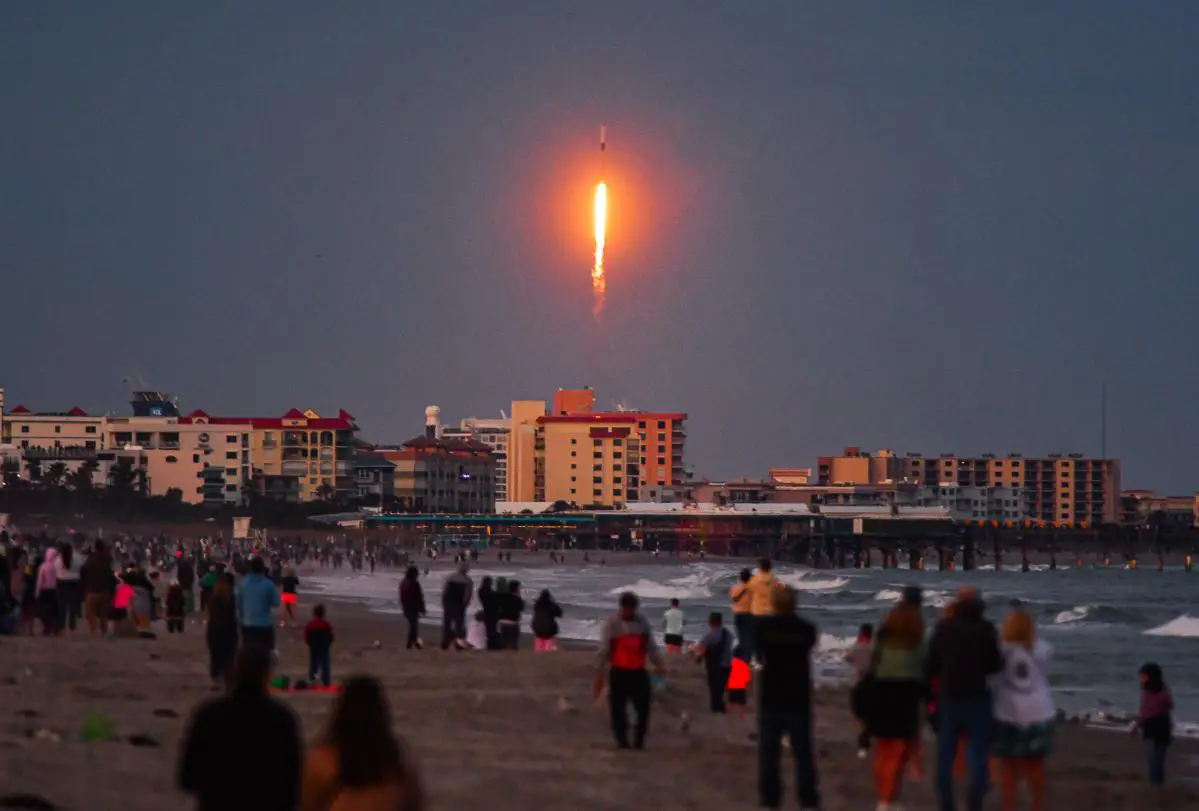Few people believed the rocket launch ecosystem on Florida’s Space Coast could accelerate at such record-shattering speed in recent years — with more unprecedented launch growth forecast in the upcoming decade, NASA’s Kennedy Space Center Director Janet Petro said.
Indeed, KSC and neighboring Cape Canaveral Space Force Station may already tie the all-time annual record of 72 orbital launches on Monday. SpaceX is targeting a Falcon 9 rocket liftoff on a Starlink satellite mission during a 4½-hour launch window from 6:40-11:11 p.m., navigational warnings indicate.
That means the Cape’s record-breaking 73rd launch of 2024 will likely happen before Halloween. And November and December remain ahead on the calendar.
“I can tell you, we are busier than we have ever been before. In 2021 — so three years ago — we supported just over 30 launches from the Eastern Range, which was a record at the time,” Petro said during an Aug. 23 Space Coast Symposium keynote speech at the Astronauts Memorial Foundation.
” … I’m expecting to see that number multiply in the future, like to 200 and 300,” Petro said.
SpaceX’s Starlink major driver of launch records
The full 2024 launch list: Rocket launches in Florida: Here’s an updating list of all 2024 Space Coast missions
For decades, the Cape’s longstanding record of 29 orbital launches dated to the experimental Apollo era in 1966. Florida actually hosted 145 total launches that year if including suborbital missions, low-altitude weather rockets, and ship and submarine-launched missiles, Jonathan McDowell, an astrophysicist at the Harvard–Smithsonian Center for Astrophysics, told FLORIDA TODAY.
That record of 29 orbital launches was topped in 2020. That’s when the Space Coast hosted 30 orbital launches — as SpaceX started building its new Starlink internet constellation. Those Falcon 9 Starlink missions soon became commonplace at the Cape, relatively speaking, as the annual record quickly expanded:
-
2021: 31 launches.
-
2022: 57 launches.
-
2023: 72 launches.
SpaceX has racked up 66 of the Cape’s 71 launches thus far this year, primarily Starlink internet satellite missions. United Launch Alliance sent up the other five rockets: the maiden flight of a Vulcan on Jan. 8, the final Delta IV Heavy on April 9, the maiden mission of Boeing’s Starliner spacecraft on June 5, the last launch of an Atlas V on a national security mission on July 30, and the second-ever Vulcan flight on Oct. 4.
“It’s an amazing testament to the private space industry, how that’s blossomed,” said John Z. Kiss, Florida Institute of Technology provost and senior vice president for academic affairs.
Kiss served as principal investigator on eight spaceflight projects aboard space shuttles and the International Space Station. He recalled how many Space Coast residents feared for the future after NASA retired the shuttle program with Atlantis’ conclusive STS-135 mission in July 2011.
“Now, there’s all this activity — future-looking — all this hope of what’s going to be happening. Building on all these tremendous successes. There’s so much activity going on with private space companies, and that’s the way of the future. So I think it’s really exciting,” Kiss said.
Launch pace threatens to outpace resources at KSC
On a less-positive note, Petro warned the fast-accelerating rocket launch pace poses a risk of outpacing resources at KSC, citing wear-and-tear and capacity issues. Stagnant NASA budgets, rising inflation and competition for skilled workers are compounding the challenge.
“We were built to support the Apollo launches back 50 years ago. That’s what we were sized for. That was our capacity. That’s what our systems were sized for,” she told the Space Coast Symposium crowd.
Petro cited an example of a first-time-homebuyer couple who purchases a three-bedroom, one-bathroom house that is perfectly suited for their needs. But when they fast-forward a couple of years, they have added two or three kids, a couple dogs and a cat.
“All of a sudden, they’re bursting at the seams trying to make good use of their space,” Petro said.
Space Florida President and CEO Rob Long attributed the Cape’s quickening launch cadence to rising demand for space-based data and services.
“I think it also speaks to the work of both the Space Force and NASA and other partners to be able to evolve over time and meet the launch rates that we’re seeing now. It’s a lot of work that has happened over the past couple of years that has led to the ability to launch over 70 times. Hopefully, we get to 100 or something like that this year,” Long said.
“And I think it also speaks to just the bow wave of activity that has started over the last five to 10 years that is starting to reach some key milestones, like a Blue Origin as they launch or Vulcan getting through its second certification flight. I think we’re going to continue to see that just accelerate, especially when you look at the forecast for a $1 trillion industry in the next decade,” he said.
“I think a lot of that is going to come right through Florida,” he said.
For the latest news from Cape Canaveral Space Force Station and NASA’s Kennedy Space Center, visit floridatoday.com/space.
Rick Neale is a Space Reporter at FLORIDA TODAY. Contact Neale at Rneale@floridatoday.com. Twitter/X: @RickNeale1
This article originally appeared on Florida Today: SpaceX targeting Sunday for record-tying 72nd launch of 2024 from Cape


Leave a Comment